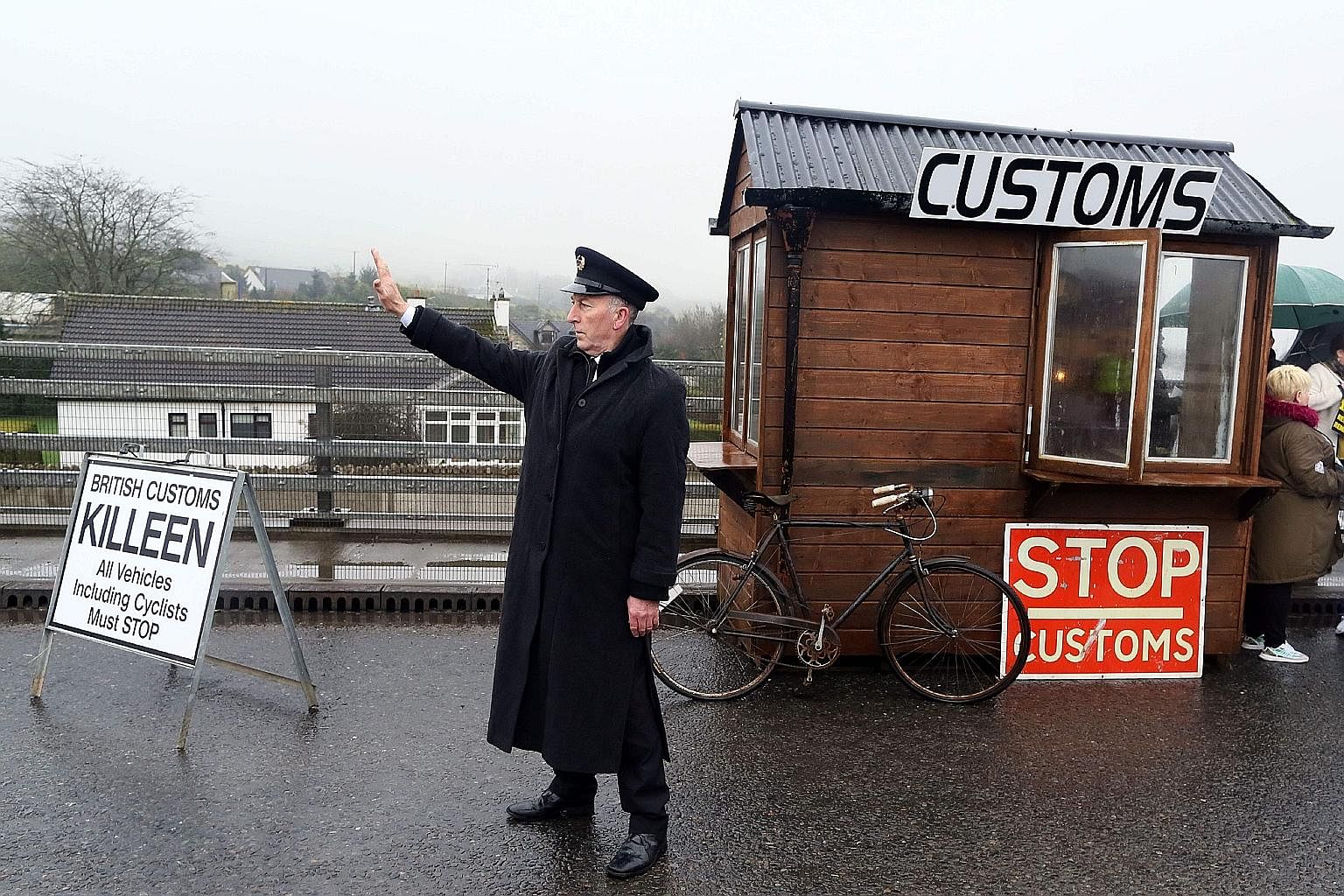European Union officials have poured cold water over newly published British government proposals to protect free trade arrangements after Britain leaves the EU.
Responding to the publication of two policy papers, a spokesman for the European Commission, the EU's executive body, said Brussels "takes note" of London's "preferences", before specifying that the British objective of retaining "frictionless trade" outside current EU membership "is not possible".
For over a year, British Prime Minister Theresa May argued that she had no intention of weakening her hand in the Brexit talks.
But she had to reverse course, partly because mystery over what her government wanted from a final Brexit deal has proven to be deeply unsettling for businesses and foreign investors, and also because the government's silence was fuelling a sense of political drift in London.
So, having confined herself for months to just repeating her slogan that "Brexit means Brexit", Mrs May now plans to publish no fewer than 12 different policy papers on her country's Brexit stance by October, when EU government leaders gather to take stock of progress in the negotiations.
Two of the policy papers - one on the broad principles of Britain's trade arrangements with the EU and another on its future links with Ireland - were released this week. And both devote many pages to clarifying very little, apart from confirming suspicions that Britain wants most of the advantages of EU membership with few of its liabilities.
The Future Customs Arrangements paper is a case in point. The British government claims to remain an ardent believer of free trade and, in the European context, there are two possible ways to ensure this continues. The first is for Britain to remain part of the EU's single market in which everything, from manufactured goods to services to people, moves freely; Norway and Iceland are in the EU's single market, despite the fact that they are not EU member states.
The second option is for Britain to maintain a customs union with the EU, one in which goods move within a common system of tariffs and import quotas; Turkey has such a customs union, notwithstanding the fact that few wish to admit it into the EU.

But the current British policy paper seems to reject both options. London does not like the idea of a single market, since that would mean EU workers coming to Britain at will, and many of those Britons who voted for Brexit did so because they resent uncontrolled immigration. But London does not seem to want a customs union either, since that would prevent Britain from being able to negotiate its own trade deals with countries outside Europe without the EU's support.
Instead, what the British are proposing is "a new customs arrangement that facilitates the freest and most frictionless trade possible in goods between the UK and the EU, and allows us to forge new trade relationships with our partners in Europe and around the world".
In effect, what they seem to be saying is that they want a customs union tailor-made for them. Why Europeans should accept this is not explained.
"We need to stop and think what would make the EU want to sign it," warns Professor Anand Menon, from King's College London, who is one of the shrewdest observers of the current talks.
The same "have your cake and eat it" approach applies to Britain's stance towards Ireland, its closest neighbour. In the policy paper released this week, London accepts that for historic and very practical political reasons of preventing renewed violence between Catholic and Protestant communities, the border between Ireland and Britain, which passes through the heart of the Irish island, should remain as open as possible.
But Mrs May's government seems unable to get around the basic fact that once Britain leaves the EU, the frontier between Ireland and Britain will become an external European border, requiring customs and immigration checks.
The British make much of the fact that 80 per cent of all Irish-British trade is conducted by small companies, and offer to shield these from customs formalities. But how is this to be done while keeping border controls remains unsaid, and the Irish government is weary. All that its Foreign Minister Simon Coveney was prepared to say is that the British government's policy paper amounts to "aspirational" principles.
And this is precisely what these papers are: statements of what Britain wants, rather than what it is determined to get, or just opening shots in lengthy negotiations.
Brexit talks resume in two weeks. And, at least for the moment, negotiators readily admit that they haven't achieved much.

